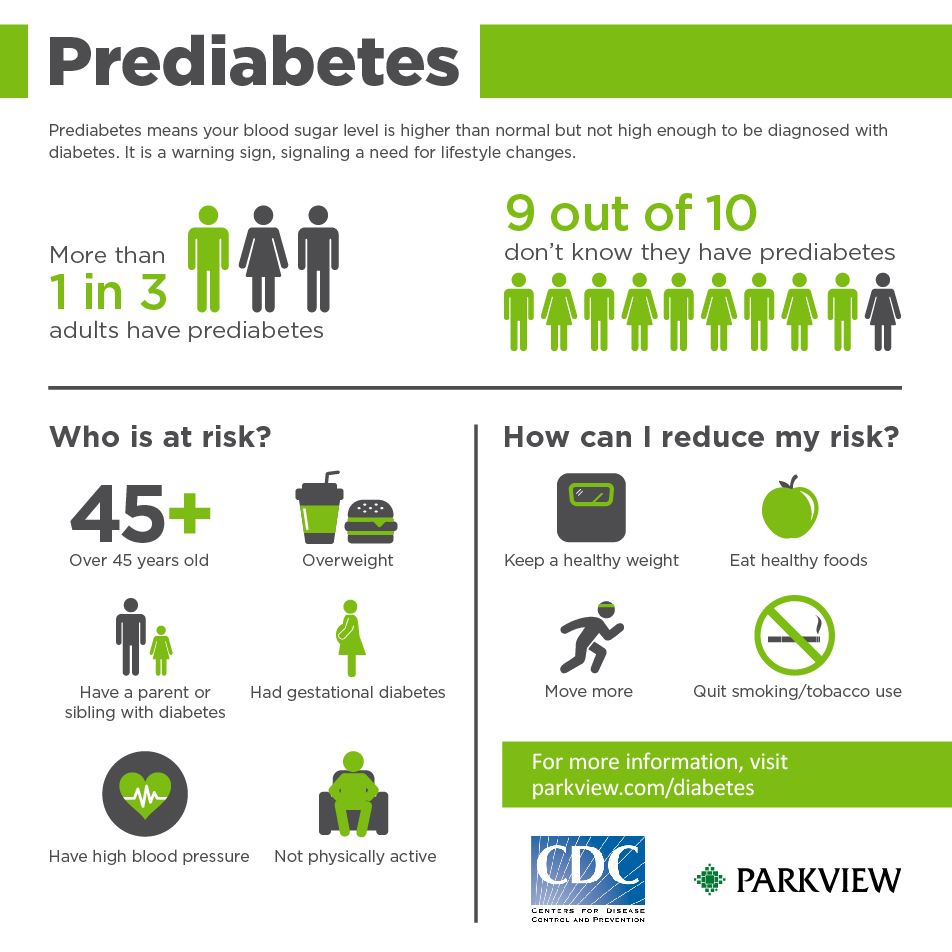
While 84 million American adults (more than 1 out of 3) have prediabetes, the Centers for Disease Control and Prevention (CDC) report that 90 percent of those suffering from the condition don’t actually know they have it. This can lead to neglecting treatment and lifestyle modification, which can mean the person eventually develops diabetes.
What is prediabetes?
Prediabetes means your blood sugar level is higher than normal but not high enough to be diagnosed with diabetes. It is a warning sign, signaling a need for lifestyle changes. Those with prediabetes typically develop type 2 diabetes within several years and are also at increased risk for serious health problems such as stroke and heart disease.
Talk with your healthcare provider to see if you are at risk for developing prediabetes. You can receive a simple blood test to find out where you stand.
Am I at risk?
You may be at risk for developing diabetes or prediabetes if you:
• Are over 45 years of age
• Are overweight
• Have a parent or sibling with diabetes
• Had gestational diabetes
• Have ever been diagnosed with high blood pressure
• Are not physically active at least three times per week

Take control and reduce your risk
Making lifestyle changes can greatly prevent or delay the onset of prediabetes and type 2 diabetes. Take control and reduce your risk by:
• Working toward a healthy weight. Aim to lose just 5 – 7 percent of your current body weight, which can slow or even reverse prediabetes.
• Eating healthy foods. Add fresh vegetables and quality protein options to each meal. Be mindful of your portion sizes. Remember, you shouldn’t eat more calories than your body needs.
• Moving more. Aim for at least 30 minutes of moderate intensity activity, such as brisk walking, most days of the week.
• If you use tobacco, challenge yourself to quit. Tobacco use is the cause of many unwanted, health-related conditions and leads to further complications in diabetes. Talk with your provider about nicotine replacement therapy and medications to help you quit.
Ready to take action and get more information?
Talk with your healthcare provider about where to begin.
Parkview Center for Healthy Living’s well-being navigators can connect you to resources to help you meet your health and well-being goals. To schedule a free consultation or for more information call (260) 672-6500.
The YMCA Diabetes Prevention Program can help you adopt and maintain a healthy lifestyle and reduce your risk of developing type 2 diabetes. Call (260) 755-4940 or email [email protected] for more information.



